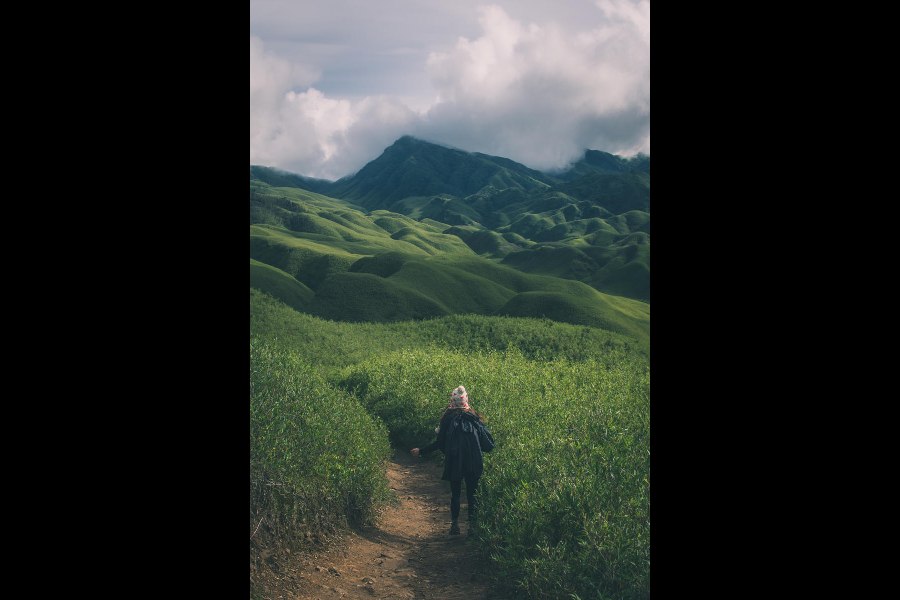Book: THE OTHER VALLEY
Author: Scott Alexander Howard
Published by: Atlantic
Price: Rs 699
Scott Alexander Howard makes a stellar debut in speculative fiction with The Other Valley — a smooth-reading, intensely profound reflection on grief, time, fate, and free will that unwraps in the guise of a tender coming-of-age love story. It comes as no surprise when the awkwardly shy and reclusive sixteen-year-old, Odile Ozanne, gets chosen for the much-coveted apprenticeship programme at the Conseil that decides the merit of petitions seeking to cross the heavily guarded town borders. Illegal passage to neighbouring valleys is strictly prohibited and punishable by death because adjoining towns are not separated geographically but chronologically and cross-border travel runs the risk of interfering with the carefully preserved timeline.
In Howard’s fictional universe, towns duplicate themselves in an endless sequential loop across the adjoining valleys, with each town being bordered by an eastern version of itself that lies twenty years ahead in time and a western counterpart located twenty years behind. As guardians of time, the Conseil only sanctions a few escorted “mourning tours” after careful vetting, allowing next of kin to secretly view their beloved dead in towns where they are still alive. So when Odile unexpectedly chances upon two masked grieving visitors escorted by a Conseil gendarme from the town’s eastern end, she rightly guesses that they are an older version of the parents of her classmate, Edme Pira, the funny, light-hearted boy who is also a violin virtuoso, the first boy to care for her who will, alas, be gone too soon. Weighed down by the burden of secret foreknowledge on her young shoulders, Odile can either risk tampering with the outcome of predestined events by giving a timely warning and saving her love or else be prepared to accept the gnawing of lifelong guilt and regret making her culpable in her own eyes.
The trajectory of her subsequent life is a devastatingly self-mortifying response to the choice she makes and the second half of the novel abruptly jerks ahead by twenty years to dwell on a now adult Odile who has voluntarily left Conseil apprenticeship to sign up as a border patroller, the meanest of jobs reserved only for the incompetent. Yet, just as she warms up to this drudging monotony, life suddenly comes full circle and Odile finds herself, once more, at the precipice of another momentous choice. Will she now, at last, be able to make amends for her earlier decision and redeem the past to catch her one final chance at happiness? The author does a brilliant job in building up a simmering suspense as he neatly dovetails both halves of the narrative into a stunningly unpredictable climax.
One of the greatest strengths of the book lies in its luxury of details that help in adding layers to plot and character. Therefore, even though the premise is essentially fantastical, the vividness of descriptions — the ramshackle ‘fort’ hidden in the school backwoods where Odile spends lazy afternoons with her new companions, the moonlit lakeside bluffs where Edme plays for her, the coldness hanging over the Grand Ecole where she attends apprenticeship classes, the houses dotting the ends of steep driveways in the quiet neighbourhood of Chemin des Pins where she stays with her mother, or the dilapidated cadet barracks where Odile whiles away her lonely hours by carving in wood — gives the novel a realistic anchor and allows Odile’s transition from adolescent naivety to mature disillusionment seem that much more credible.
The ability to twist a futuristic novel into an elegiac meditation on memory, love, and loss is a rarity. Howard is definitely an author to watch out for.










